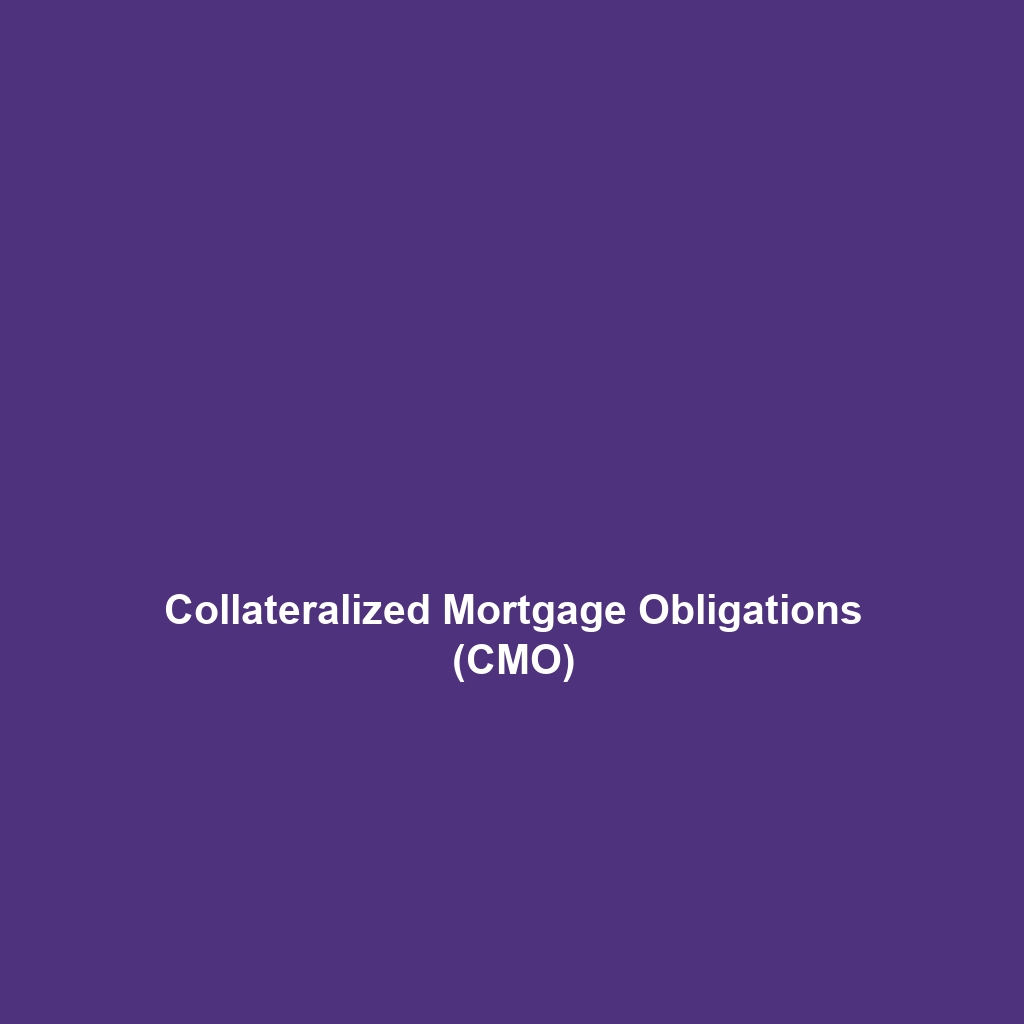Your cart is currently empty!
Tag: credit rating agencies

Non-Agency MBS
Understanding Non-Agency Mortgage-Backed Securities (MBS)
1. Overview
Non-Agency Mortgage-Backed Securities (MBS) are financial instruments that represent claims on cash flows generated from a pool of mortgage loans that are not guaranteed by government-sponsored enterprises such as Fannie Mae or Freddie Mac. Unlike Agency MBS, which carry those government guarantees, non-agency MBS often include mortgages made to borrowers with less-than-prime credit scores, or those loans that exceed the conforming loan limits set by these agencies.
In the financial markets, non-agency MBS play a crucial role as they provide investors with a vehicle for exposure to the real estate market while offering the potential for higher returns compared to more traditional fixed-income securities. These securities can yield attractive yields and are integral in diversifying investment portfolios, especially during times of market volatility.
2. Structure and Function
The mechanics of non-agency MBS revolve around the processes of pooling and securitization. Initially, a variety of mortgage loans with different characteristics are gathered or ‘pooled’ together. This pool can include various types of loans, from traditional fixed-rate mortgages to adjustable-rate mortgages.
Once the pool is established, these mortgage loans are securitized, meaning that they are transformed into a financial instrument that can be sold to investors. In this step, a special purpose vehicle (SPV) is often created to issue securities backed by the cash flows from the underlying mortgage payments. Investors in the resulting MBS receive interest and principal payments as borrowers make their mortgage payments over time. The cash flow is typically structured into different tranches or slices, each with distinct risk and return profiles, allowing investors to choose investments that align with their risk appetite.
3. Market Dynamics
Economic conditions and interest rate trends significantly impact non-agency MBS. These securities are particularly sensitive to changes in interest rates. When interest rates rise, the value of existing non-agency MBS usually declines because new loans at higher rates can lead to reduced demand for existing, lower-yielding securities. Conversely, a declining interest rate environment might trigger higher prepayment rates, as borrowers refinance their mortgages to take advantage of lower rates.
Additionally, housing market conditions also play a critical role. A robust housing market with rising home prices typically supports the performance of non-agency MBS, reducing default rates and improving investor confidence. Conversely, market downturns can lead to higher default rates on the underlying mortgages, adversely affecting the performance of these securities.
4. Benefits and Use Cases
Investing in non-agency MBS comes with numerous benefits. Firstly, these securities often yield higher returns compared to traditional Agency MBS, making them attractive to yield-seeking investors. Secondly, they provide diversification benefits within fixed-income portfolios due to their unique risk-return characteristics. Institutional investors, such as pension funds, mutual funds, and insurance companies, often diversify across different tranches of non-agency MBS to manage their risk better while maximizing returns.
Moreover, non-agency MBS can act as a hedge against inflation. As the value of real assets, like housing, tends to rise with inflation, the cash flows derived from the mortgage payments can maintain their purchasing power over time. This feature can be particularly appealing during periods of economic uncertainty.
5. Risks and Limitations
While non-agency MBS can offer several benefits, investors must also be aware of the risks involved. One of the primary risks is prepayment risk, which occurs when borrowers pay off their mortgages early, usually during periods of declining interest rates. This can lead to reinvestment challenges for investors, as the proceeds are returned sooner than expected, often at lower prevailing interest rates.
Another significant risk is default risk. During economic downturns, borrowers may default on their obligations, leading to the loss of principal for MBS investors. The inherent credit risk in non-agency MBS is particularly relevant given the pool composition, which often includes lower-quality loans.
Market volatility is another crucial limitation. Changes in market sentiment, particularly regarding real estate, can impact the demand and pricing of non-agency MBS, potentially leading to significant losses for investors in adverse conditions.
6. Key Markets and Investors
Non-agency MBS are primarily traded in the over-the-counter (OTC) market, where large institutional investors and hedge funds dominate trading activity. Major investors in non-agency MBS include investment banks, asset managers, and insurance companies that seek higher returns compared to traditional fixed-income investments. In addition, wealthy individuals and family offices may also actively invest in non-agency MBS, particularly in the reshaped market landscape following the 2008 financial crisis, where these assets gained recognition for their potential value.
Key players often rely on credit rating agencies to evaluate the risk associated with specific non-agency MBS, a significant factor influencing investment decisions. Additionally, the liquidity of these securities can be variable, depending on market conditions and investor appetite.
7. Conclusion
Non-agency mortgage-backed securities are an essential component of the broader financial system, offering opportunities for enhanced yield and portfolio diversification. Understanding their structure, mechanics, and the factors influencing their performance can help investors navigate the complexities of this investment class. While they present potential risks, the rewards can be substantial, particularly in favorable economic climates.
As investors continue to seek attractive returns in an evolving marketplace, non-agency MBS remains a relevant and pivotal asset class in fixed-income investing.
Discover more sustainable financial solutions at UpCube.net.